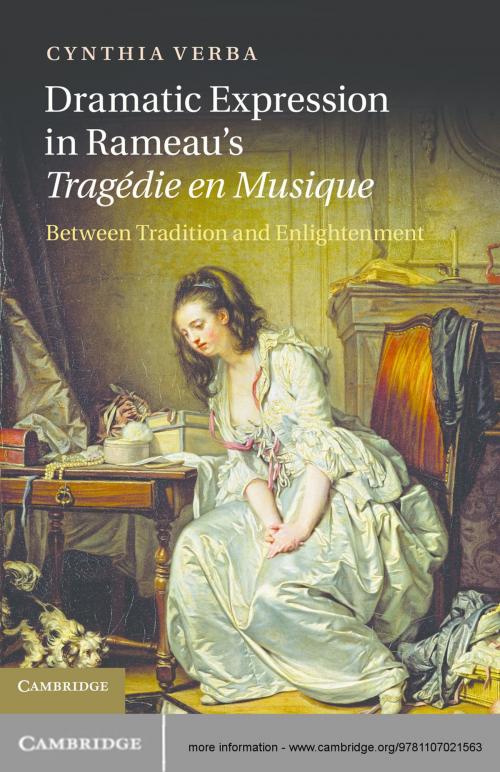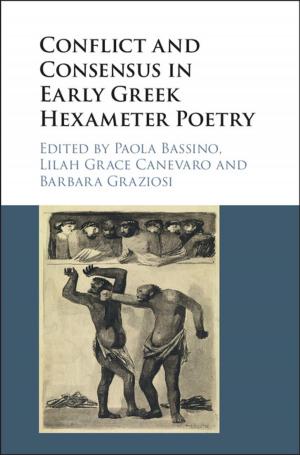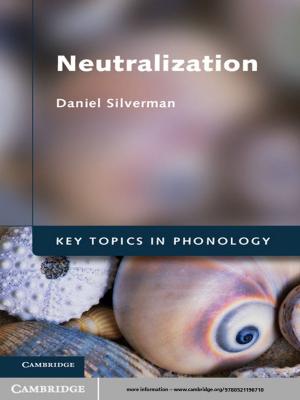Dramatic Expression in Rameau's Tragédie en Musique
Between Tradition and Enlightenment
Nonfiction, Entertainment, Music, Music Styles, Classical & Opera, Opera| Author: | Cynthia Verba | ISBN: | 9781107301474 |
| Publisher: | Cambridge University Press | Publication: | February 21, 2013 |
| Imprint: | Cambridge University Press | Language: | English |
| Author: | Cynthia Verba |
| ISBN: | 9781107301474 |
| Publisher: | Cambridge University Press |
| Publication: | February 21, 2013 |
| Imprint: | Cambridge University Press |
| Language: | English |
Cynthia Verba's book explores the story of music's role in the French Enlightenment, focusing on dramatic expression in the musical tragedies of the composer-theorist Jean-Philippe Rameau. She reveals how his music achieves its highly moving effects through an interplay between rational design, especially tonal design, and the portrayal of feeling and how this results in a more nuanced portrayal of the heroine. Offering a new approach to understanding Rameau's role in the Enlightenment, Verba illuminates important aspects of the theory-practice relationship and shows how his music embraced Enlightenment values. At the heart of the study are three scene types that occur in all of Rameau's tragedies: confession of forbidden love, intense conflict and conflict resolution. In tracing changes in Rameau's treatment of these, Verba finds that while he maintained an allegiance to the traditional French operatic model, he constantly adapted it to accommodate his more enlightened views on musical expression.
Cynthia Verba's book explores the story of music's role in the French Enlightenment, focusing on dramatic expression in the musical tragedies of the composer-theorist Jean-Philippe Rameau. She reveals how his music achieves its highly moving effects through an interplay between rational design, especially tonal design, and the portrayal of feeling and how this results in a more nuanced portrayal of the heroine. Offering a new approach to understanding Rameau's role in the Enlightenment, Verba illuminates important aspects of the theory-practice relationship and shows how his music embraced Enlightenment values. At the heart of the study are three scene types that occur in all of Rameau's tragedies: confession of forbidden love, intense conflict and conflict resolution. In tracing changes in Rameau's treatment of these, Verba finds that while he maintained an allegiance to the traditional French operatic model, he constantly adapted it to accommodate his more enlightened views on musical expression.















